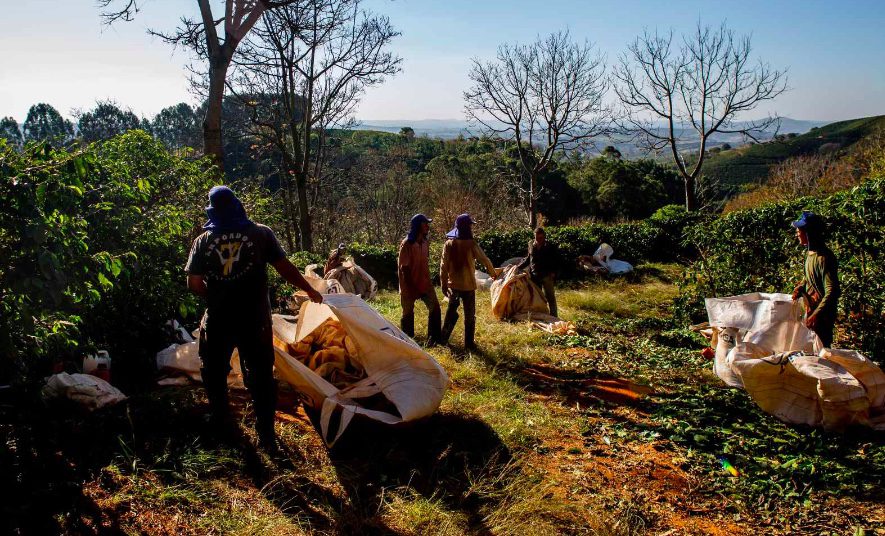
Starbucks: slave and child labour found at certified coffee farms in Minas Gerais
On a farm in Ilicínea, southern Minas Gerais, a 16-year-old boy harvests coffee. That is not in compliance with the List of Worst Forms of Child Labour, which bans employing workers under 18 in activities that involve carrying heavy loads and unprotected exposure to sun or rain. The young man travelled 1,600 kilometres from his home in the state of Bahia to the farm. He says he paid for transportation, even though he had been previously hired for the service – another situation banned by Brazilian labour laws.
Not far away, in the town of Cabo Verde, the water that quenches the thirst of men and women temporarily hired for the harvest is stored in a container previously used for gasoline. At workers’ lodgings, employees have to buy their own stoves to cook meals during harvest season. All of this happens despite their employer’s legal obligation to provide a proper place for cooking Are you down for a cup of coffee? as well as clean, contamination-free drinking water.
On another property in Campos Altos, 17 workers are rescued from modern slavery. The group includes a 15-year-old girl who used to work alongside two boys aged 16 and 17. Basic tools for harvesting coffee, such as gloves, boots and clothes to throw the beans on, had to be bought by the workers themselves – one more item to be discounted from their wages.
All these situations happened on farms that hold – or used to hold until recently – the C.A.F.E. Practices seal (an acronym for Coffee and Farmer Equity), a certification programme of American multinational company Starbucks, the world’s largest coffee shop chain, which lists ‘a set of ethical standards‘ to be followed by their suppliers.
The coffee cultivated on these farms is shipped to local cooperatives and companies or subsidiaries of global commodity corporations. Its final destination may be have one of the 35,000-plus Starbucks stores spread across 83 countries.
After months of investigation, this special report by Repórter Brasil describes situations that may constitute labour and human rights violations related to the American multinational’s supply chain. Evidence shows that Starbucks, which promises “endless possibilities for human connection”3 with every cup, still has a long way to go to ensure – starting at the source – that its coffee is produced and harvested on farms with fair working conditions and decent wages.
